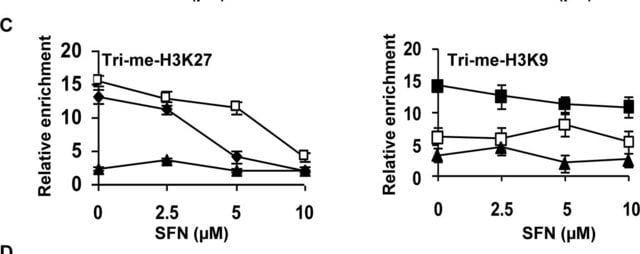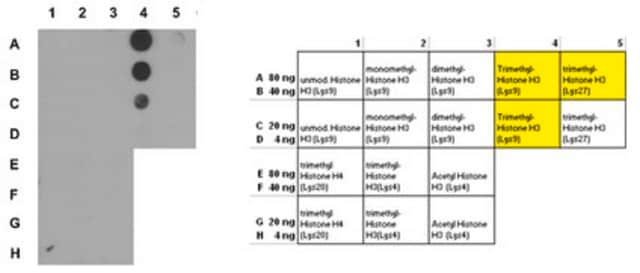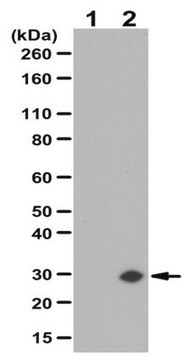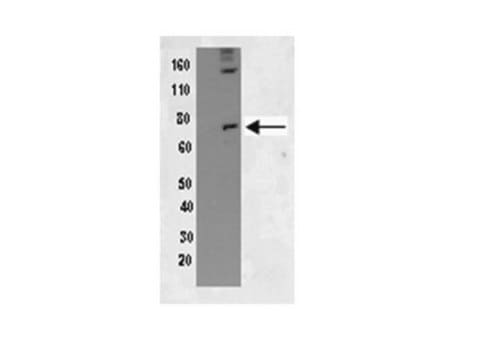07-441
Anti-dimethyl-Histone H3 (Lys9) Antibody
Upstate®, from rabbit
Synonym(s):
H3K9me2, Histone H3 (di methyl K9), H3 histone family, member T, histone 3, H3, histone cluster 3, H3
About This Item
Recommended Products
biological source
rabbit
Quality Level
antibody form
purified immunoglobulin
antibody product type
primary antibodies
clone
polyclonal
species reactivity
human, mouse, Schizosaccharomyces pombe, rat, chicken
manufacturer/tradename
Upstate®
technique(s)
dot blot: suitable
immunocytochemistry: suitable
inhibition assay: suitable (peptide)
western blot: suitable
isotype
IgG
NCBI accession no.
UniProt accession no.
shipped in
dry ice
target post-translational modification
dimethylation (Lys9)
Gene Information
human ... H3C1(8350)
mouse ... H3C1(360198)
rat ... H3C1(679994)
General description
Specificity
Immunogen
Application
Specificity confirmed by an independent laboratory.
Peptide Inhibition:
Specificity was confirmed by the ability of 1 μM of the immunizing peptide to completely abolish detection of Histone H3 in western blot analysis of HeLa acid extracts (Figure A, Lane 4).
Immunocytochemistry:
Reported by an independent laboratory.
Quality
Western Blot Analysis:
1:500 dilution of this lot detected dimethyl Histone H3 on 10 μg of HeLa acid extract but not on recombinant Histone H3.
Target description
Physical form
Storage and Stability
Handling Recommendations: Upon receipt, and prior to removing the cap, centrifuge the vial and gently mix the solution. Aliquot into microcentrifuge tubes and store at -20°C.
Avoid repeated freeze/ thaw cycles, which may damage IgG and affect product performance. Note: Variability in freezer temperatures below -20°C may cause glycerol containing solutions to become frozen during storage.
Analysis Note
HeLa whole cell lysate, U2OS cell lysate.
Other Notes
Legal Information
Not finding the right product?
Try our Product Selector Tool.
Storage Class Code
10 - Combustible liquids
WGK
WGK 1
Certificates of Analysis (COA)
Search for Certificates of Analysis (COA) by entering the products Lot/Batch Number. Lot and Batch Numbers can be found on a product’s label following the words ‘Lot’ or ‘Batch’.
Already Own This Product?
Find documentation for the products that you have recently purchased in the Document Library.
Our team of scientists has experience in all areas of research including Life Science, Material Science, Chemical Synthesis, Chromatography, Analytical and many others.
Contact Technical Service







